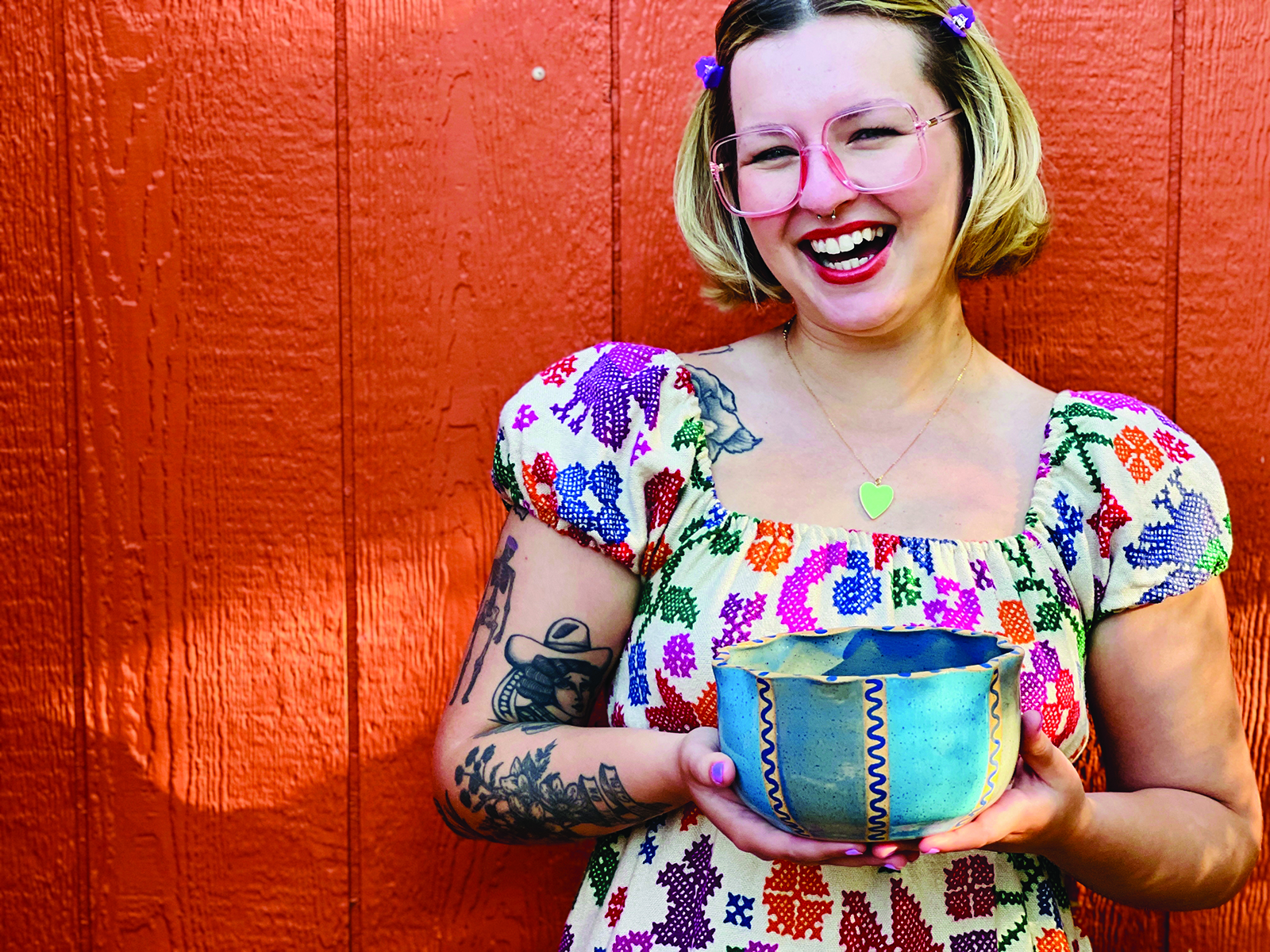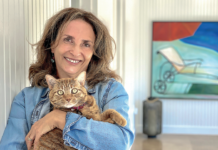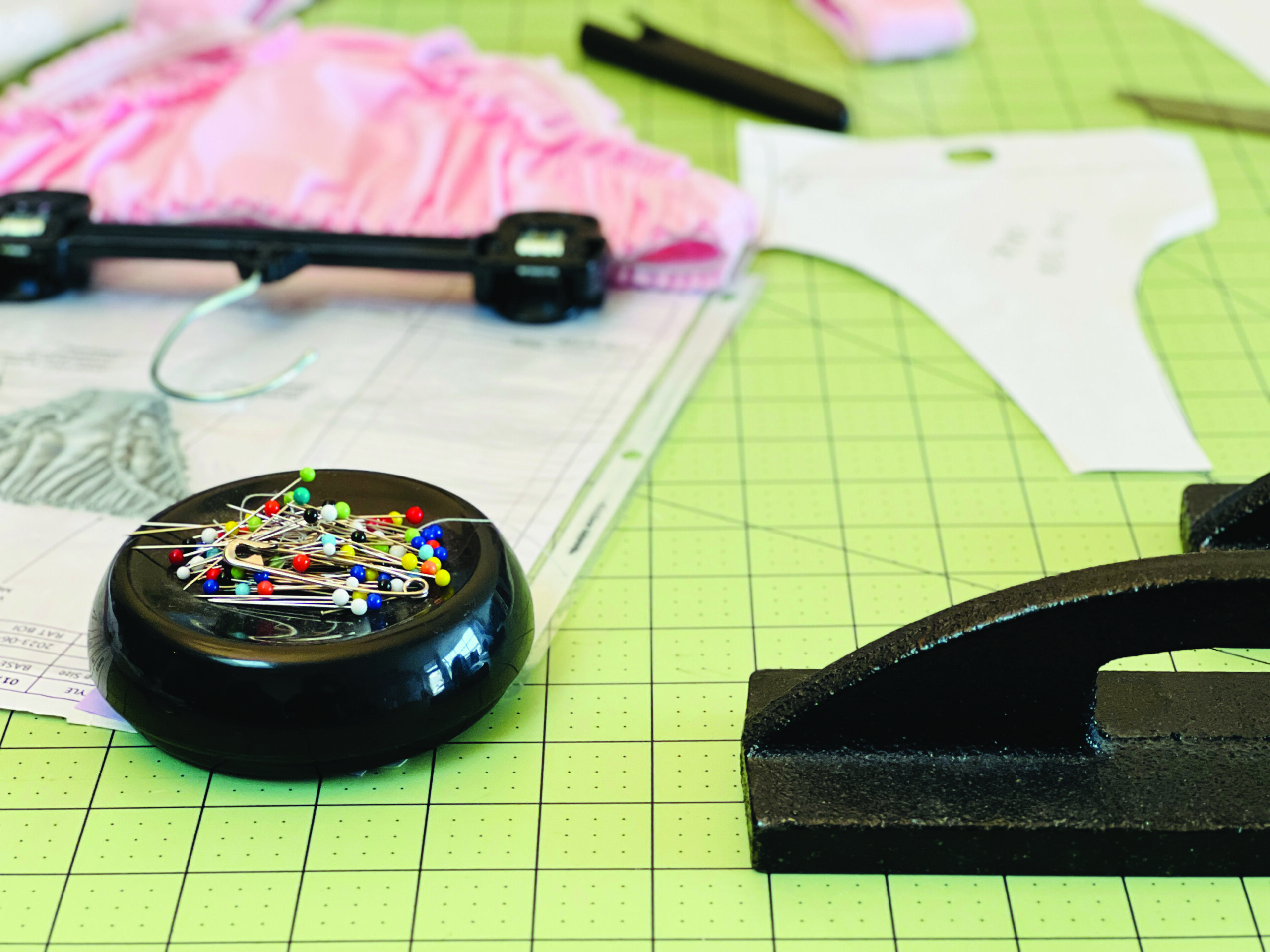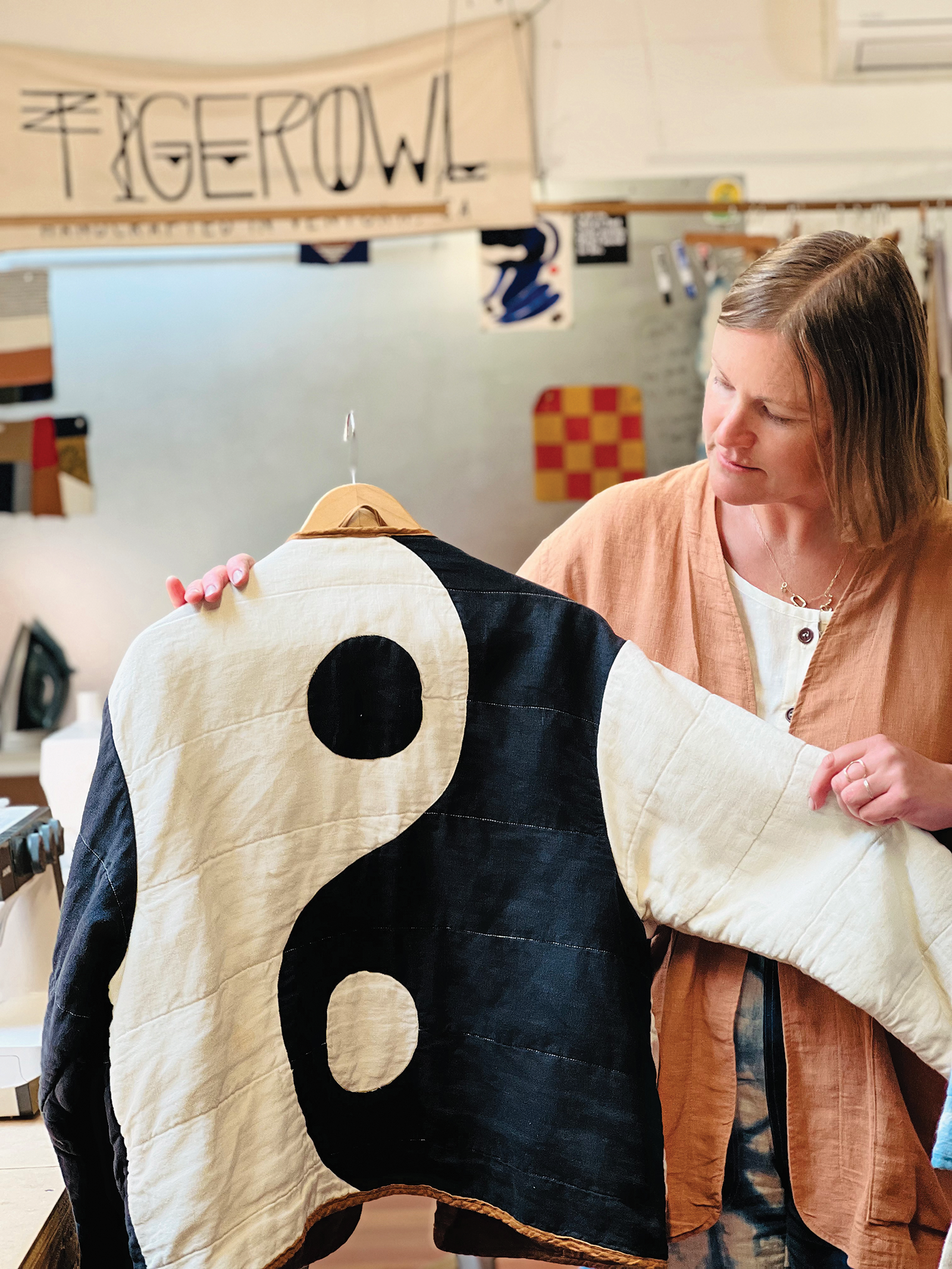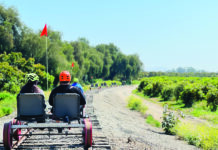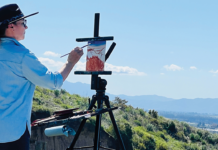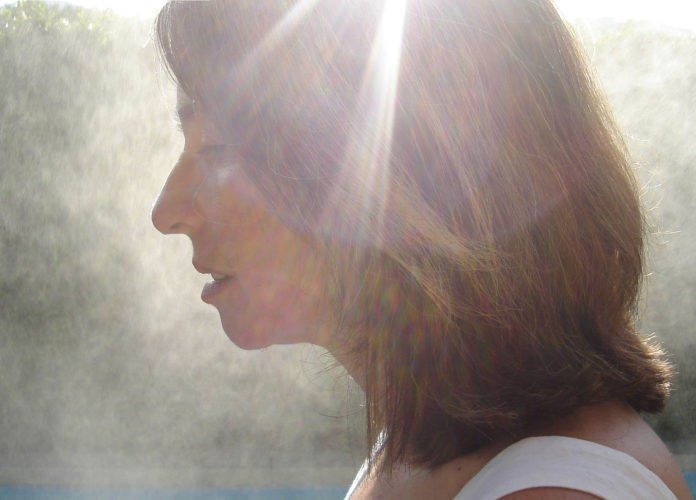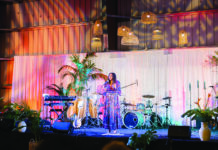Ventura poet Marsha de la O distills magic from the pain, joy and bewilderment of everyday life.
By Leslie A. Westbrook
Petite, with a lovely infectious giggle, Marsha de la O reminds me of a songbird. Her songs are poems and her flights of fancy have taken her (in her earlier life as a teacher) from some of the toughest neighborhoods in Los Angeles to Spain to the bucolic countryside of Santa Paula, where she fled for a safer bilingual teaching position and for relief from the gangs, drugs and racial issues in South Central L.A.’s Main School, where she taught 1980-81. She now makes her home in Ventura.
“A woman I know said she knew a place where the grass was green, not concrete,” recalled the poet of the time when she was being hired over the phone to teach in Santa Paula.
This, and more, contributed to de la O’s blossoming into the writer/poet she always wanted to be.
De la O is a real last name which she retains from her first marraige. It harks from Spain, “With roots that may refer to the crowing when the baby Jesus was born or perhaps the round mouth of wonder when the Virgin Mary discovered her immaculate conception,” de la O tells me.
What the modest, award-winning 66-year-old poetess will not tell you, is that she has not only been published in The New Yorker, but that you can hear her read on the publication’s website.
She is currently celebrating the hard-earned and well-deserved recent release of her third book of poems, Every Ravening Thing (University of Pittsburgh Press, $17).
The circa 2016 inspiration for this tome revolved around “looking at the ways that every human is someway shaped by pain or trauma or grief and how that is a shaping force for the person,” de la O noted, adding, “Wounds are separated and segregated from the whole and are taboo to talk about it. Maybe you can unload it on your most intimate partner or tell a therapist.”
Marsha de la O grew up in a glass house on a hill in Glendale. She studied writing at Occidental College with John Rechy. Her first job was as a bilingual elementary school teacher. She spent two years in Valencia, Spain, with her daughter and, finding it “impossible to step back into life” as she knew it, she decided to enter an MFA poetry program. Once completed, she submitted her thesis book of poetry into a contest and won. New Issues Press published her first book of poems in 1997. She retired from teaching in 2008, but didn’t publish again until 2014-2015. Antidote for Night (BOA Press) earned her an Isabella Gardner Poetry Award.
Back to her current release, Every Ravening Thing:
“I wanted it to include not just my own story, but also men’s and women’s stories from the past, she said.
She shaped poems around historical figures, both known and lesser known, including English Romantic poet John Keats’ relationship with his mother who died when he was just 14 years old, as well as those of anonymous women who lost their babies in the 19th century.
There are also poems about sexual violence as well as laments like this:
“To the Grandmothers
Chernobyl, thirty years later”
Old women with side gardens and jars
of moonshine alone in empty villages,
Tell me, solitary lynx, multitudinous wolf
pack , how do you do it— all my life I’ve lived
in cities, bought food from grocery stores —
what’s it like to return to the abandoned zone
on foot, reclaim your cottage beside the dank
canal, to howl, to hunt in packs, to foal calves,
fell trees, light down in the bodies of swans
and swim in cooling ponds , why would you
fly three thousand miles to build a nest
inside the cracked concrete sarcophagus
over the remnants of reactor four? She grins
hands over a jar of vodka, the good stuff,
Motherland is motherland, she says.
“The act of creating poetry is a healing act. Poems are meant to be read or shared; you are accompanied on your journey by the fact of having been heard,” she says.
The award-winning poet also wanted to include a series of poems that “tracked relationship with the natural world, as another way of embedding oneself in something that is real and healing.”
Take for instance, this excerpt from “Ode to Apples”:
Take one. Peer into your life. Why not
Pray to what’s rooted in earth:
Apples of Autumn,
let me plummet
into your charmed windfall.
let me bless, finally, the snake —
“There’s a lot of nature poems included because we cannot look at our natural world as beautiful. It’s too under threat. I wanted to include a realistic view of nature — that included the damage.”
De la O was working on this collection of poems when her husband, fellow poet and poet laureate of Ventura Phil Taggart, was suddenly stricken with appendicitis. She said that this was actually “a sort of blessing in disguise, as the scan also revealed kidney cancer. It was a life saver.” Taggart recovered from the first operation. De la O was determined to finish the manuscript — which she did — before the second operation to remove his kidney. The pressure of her husband’s diagnosis created “another strand.” In August of 2017 she finished, the day before his operation.
She sent the manuscript out to five publishers. Her first rejection letter arrived and she was “crushed”.
“I felt terrible. It was so awful that I decided that I was not going to tell anyone about this for six months! Then, I would tell my sisters.”
The next rejection was so swift, de la O was sure it hadn’t been read. Another was positive, but not a sale. Two more were pending — and a lot of time passed.
March roared in like a lion and she knew it was about time to confess to her sisters. But it left like a lamb when a seven-word email from the University of Pittsburgh Press’s iconic editor Ed Orchester arrived:
“I love it. Is it still available?”
In the meantime, the #MeToo movement had “broken loose.”
“Timing was everything,” noted de la O.
A new book was born.
Her advice for those who say they hate, fear or don’t understand poetry?
“Poetry is a beautiful fermentation, full of all kinds of voices and different things. Listen to Krista Tippet’s podcast On Being. She talks with poets and sets it in a context. The program is part poetry, part psychology, and partially the voice of a Millennial exploring her own psyche. That’s a way in to understanding poetry.”
Another suggestion is to read only one poem a day.
“You’re not supposed to read them one after another like a box of chocolates! Read one and stay with it. See what it gives you.”
Her poems are packed thick with meaning and history. She’s a magician and master wordsmith, recalling her own times past (from her 8-year-old, stork-legged daughter during the time they lived in Spain) to that of others, like those grandmothers of Chernobyl living in the “abandoned zone.”
Many of us are living in a state of grief. If we are not directly grieving over the loss or illness of a loved one then chances are we are grieving for a close friend who is going through a difficult period. De la O’s poems offer solace and comfort in one’s time of need.
“When you think about poetry, language offers you ways into shaping pain or grief, a way of taking the silence around it…the separation and breaking through. It’s a way to honor the person’s experience and make something beautiful, in spite of the subject matter.”
Maybe, in the end, we all live in the abandoned zones. But we connect with words, poets, dancers and dreamers to heal with the ravening crowd.
Hear Marsha de la O and
other poets read their work on
Thursdays at 7:30 p.m. at the Ventura Public Library on Main Street. Open mike begins at 7:45 p.m.
Marsha de la O
upittpress.org/authors/marsha-de-la-o/w







